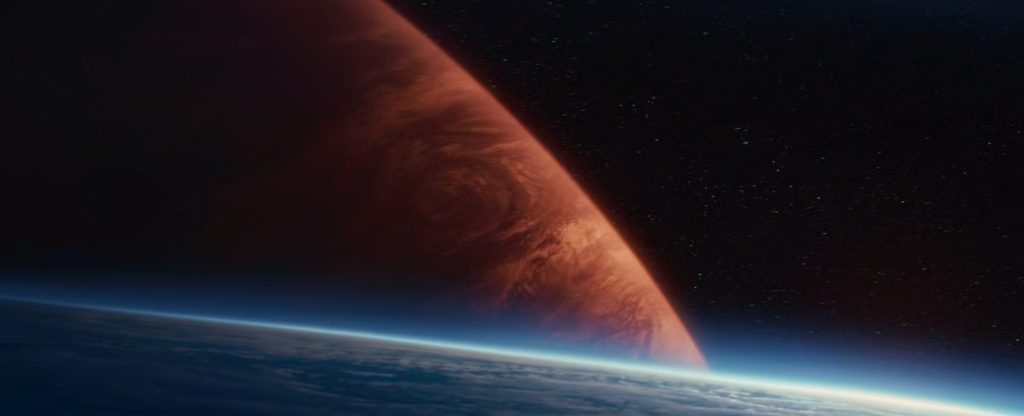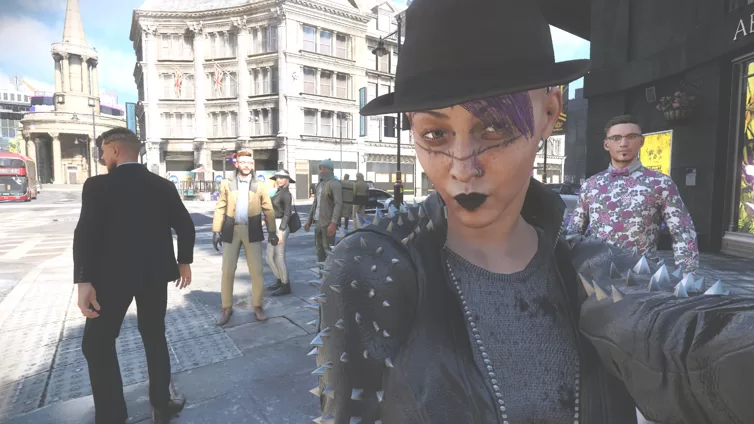|
Getting your Trinity Audio player ready… |
© 2025 By Cydonis Heavy Industries, (C.H.I), Ltd.
The cacophony of London in 2024 was a familiar roar to Chi – the rumble of the Tube, the distant wail of sirens, the incessant chatter of a thousand conversations. But lately, Chi had started noticing a new kind of silence within the noise: the silence of the Unseen. These weren’t ghosts, but people whose faces, the very maps of their identities, were increasingly obscured, not by choice, but by the creeping demands of modern life.
It had begun subtly, almost unnoticed. The delivery riders, once a kaleidoscope of individuals, were now mostly hidden behind identical branded helmets and pollution masks, their expressions lost, their presence reduced to a fleeting transaction. Then came the sanitation workers, their features already often shielded by practical gear, now almost entirely erased behind new, council-mandated “hygiene optimisation units” – full-face visors that reflected the grey London sky. The justifications were always sensible: air quality, safety protocols, efficiency.
Chi ran a small repair shop in a quiet Camden backstreet, a relic of a place filled with the scent of old leather, warm solder, and brewing tea. They mended things that Londoners were quick to discard – worn-out shoes, cracked phone screens, beloved but broken household gadgets. It was in this haven of the tangible that the creeping anonymity felt most stark.
One rainy Tuesday, a woman entered, her face entirely hidden by a sleek, matte-black “PrivacyPlus” mask, a trendy piece of tech that projected a serene, generic human face onto its outer surface. It was advertised as a way to “navigate the urban environment with minimal social friction.” She carried a child’s battered Paddington Bear.
“It’s stopped talking,” she said, her voice slightly synthesized by the mask. “Needs fixing.”
“Of course,” Chi replied, taking the bear. “Does your little one miss his voice?”
The projected face on the
mask didn’t change. “The child, designation ‘Primary User,’ requires the auditory stimulus for its developmental schedule. Please ensure it’s operational by Thursday.”
“Primary User?” Chi echoed, a familiar chill settling in. “Not… their name?”
The serene projection flickered almost imperceptibly. “Names are for personal interactions. This is a functional requirement.”
Chi mended the bear, carefully stitching a loose seam and replacing the tiny voice chip. When the woman returned, Chi tried again. “I managed to get a few classic Paddington phrases on there. I hope Primary User likes them.”
The mask remained impassive. “Standard functionality is all that’s required. Emotional variables are counterproductive to scheduling.”
The trend continued. Baristas in chain coffee shops wore transparent masks with pre-printed, unnervingly consistent smiles. Security guards at new developments stood behind reflective visors, becoming faceless enforcers of private space. The narrative, subtly woven into news feeds and corporate wellness blogs, spoke of “streamlined interactions,” “enhanced focus,” and “personal emotional resource management.”
Chi saw the subtle rebellions. The delivery rider who’d stuck a tiny, faded band sticker to the back of his helmet. The barely perceptible sigh from behind a barista’s printed smile when the card machine glitched again. These were the whispers of individuality fighting to breathe.

One late evening, as Chi was locking up, they noticed a figure slumped against the bins in the alley. It was a street cleaner, their orange hi-vis and council-issue visor making them an anonymous fixture of the urban landscape. But tonight, the visor was askew, pushed up slightly. Beneath it, Chi saw not a blank space, but a pair of red-rimmed eyes, exhausted and unmistakably human.
Chi hesitated. Every instinct honed by London life screamed to walk on, to not get involved. But the raw vulnerability in those eyes was a hook. Chi unlocked the shop door again, emerging a moment later with a steaming mug.
“Long night?” Chi offered, holding out the tea.
The figure startled, pulling the visor down instinctively before seeming to reconsider, pushing it up again. A tired nod. A hand, chapped and work-worn, reached for the mug.
“Sometimes,” a voice, rough and unmodulated, finally came, “you just feel like part of the pavement, don’t you? Just another thing to be cleaned around, not seen.”
Chi sat on an overturned crate, the alley damp and smelling of stale bins and rain. They didn’t ask for a name, didn’t pry. They just shared the silence, the warmth of the tea a small comfort against the London chill.
The city thrummed on, its millions rushing, its screens glowing with curated lives and anonymous interactions. But here, in this forgotten alley, something real had passed between two people. Chi knew it wouldn’t change the city overnight. But it was a start. It was the quiet, determined act of seeing, of acknowledging the person behind the function, the face behind the mask. And in those small, human connections, Chi believed, lay the hope that London’s true faces would not be entirely erased.
A few weeks later, the chill of late autumn had truly set in, biting through Chi’s coat as they descended into the labyrinthine tunnels of the Northern Line. The usual evening rush was a tide of downcast eyes and hurried footsteps, each person encased in their own bubble of music, podcasts, or weary thoughts. The air was thick with the metallic tang of brakes and the stale breath of the Underground.
Then, a raw sound ripped through the ambient din. It wasn’t the usual busker’s melody or a drunken argument. It was a howl of pure despair.
“End it! For God’s sake, someone help me fucking end it! I can’t fucking live like this anymore! You did this to me! All of you! YOU FUCKING SHITHEADS!! YOU FUCKING MONSTERS!!! FUCKING KILL MEEEE!!!”
The commuters flinched, a ripple of discomfort passing through the crowd. Most quickened their pace, eyes fixed firmly ahead or on their screens, expertly navigating around the source of the disturbance. It was the London way – don’t make eye contact, don’t engage. Stiff upper lip, etcetera. ‘Keep calm and carry on.’
Chi, however, paused. Leaning against the grimy tiles of a connecting tunnel, a man was crumpled like a discarded newspaper. His clothes were rags, his face, unobscured by any mask or visor, was a roadmap of suffering – dirt-streaked, hollow-cheeked, with eyes that burned with a desperate, terrifying light. He wasn’t just Unseen in the new, technologically-mediated way; he was the old kind of Unseen, the kind society had always tried to ignore.
“Look at me!” he screamed, his voice cracking. “Look what you’ve made! A ghost in your machine! I had a life! A job! A… a face!” He clawed at his own cheeks, his nails leaving faint red trails. “Now I’m just… refuse! Something to be swept away!”
A few coins rattled into the stained blanket at his feet, tossed from a safe distance. No one stopped. No one spoke to him. He was a problem, a disturbance, a broken part of the city’s machinery that was best ignored.
His gaze, wild and unfocused, snagged on Chi, who hadn’t moved. For a moment, his tirade faltered. He stared at Chi, a flicker of something unreadable in his eyes – confusion, perhaps, or a desperate plea for acknowledgement beyond the cursory charity.
“You,” he rasped, his voice dropping to a conspiratorial, broken whisper. “You see it, don’t you? They don’t even look. They just want us gone. Easier if we just… disappear.” He gestured vaguely towards the tracks as a train thundered past, the gust of wind pressing his thin clothes against his skeletal frame.
Chi’s heart ached. This was a rawer, more brutal form of the dehumanisation they witnessed daily. This wasn’t about efficient masks or streamlined interactions; this was about a life shattered, a person reduced to begging for their own oblivion in the belly of the city.
Chi took a slow step forward, then another, acutely aware of the averted gazes of the other commuters. They knelt, not too close, but enough to break the invisible barrier of indifference. They had no easy answers, no platitudes to offer. What could one say to a man so utterly broken?
“I see you,” Chi said softly, their voice barely audible above the rumble of another approaching train. “I see your face.”
The man stared, his wild eyes focusing on Chi’s with an unnerving intensity. The anger seemed to drain out of him, replaced by a vast, cavernous emptiness. A single tear traced a clean path through the grime on his cheek. He didn’t speak for a long moment, the only sounds the distant clatter of the trains and the hushed footsteps of people hurrying by, their faces resolutely turned away.
Then, his lips, chapped and pale, moved. “A face…” he whispered, the words barely formed. “I used to… I used to carve them. Little wooden birds. Each one different.” His gaze drifted past Chi, to some point in the grimy tunnel wall, as if seeing those birds take flight. “They had character. Not like… not like these.” He gestured weakly at the fleeting blurs of commuters, their features either hidden or hardened into masks of indifference.
The flicker of memory faded, and the despair returned to his eyes, though the frantic edge was somewhat blunted. He looked back at Chi, a profound weariness settling over him. “No one wants birds anymore. Just… efficiency.”
Chi reached into their bag and pulled out a small, foil-wrapped bar of chocolate – emergency rations for long days. They offered it to him. He looked at it, then at Chi, and for a second, something like surprise registered. Slowly, his hand, trembling, reached out and took it. His fingers brushed Chi’s, and the contact was like a spark of warmth in the cold, damp air.
He didn’t thank Chi, not in words. But his eyes held theirs for a moment longer, a silent, desolate acknowledgement. Then he looked down at the chocolate bar, turning it over in his hands as if it were a precious, forgotten artifact.
The moment stretched, fragile and heavy. Chi knew they couldn’t stay. They couldn’t solve the vast, systemic failures that had led this man to such a desperate place. Another train was approaching, its roar growing louder, a reminder of the relentless pulse of the city that had no time for such quiet miseries.
“Take care,” Chi said, the words feeling inadequate, almost absurd. They stood up, their knees stiff.
The man didn’t look up again. He was absorbed in the small chocolate bar, his shoulders hunched, a solitary island in the river of humanity flowing past.
As Chi walked towards their platform, the man’s whispered words echoed in their mind: “I used to carve them… Each one different.” It was a stark reminder of what was being lost – not just faces, but the unique stories, the individual crafts, the very essence of the people behind them. The encounter left Chi with a profound sadness, but also a strengthened, albeit heavy, resolve. Seeing was not enough, but it was where everything had to start. The city’s unseen faces were not just obscured by masks and visors; some were simply worn down by life until they became invisible. And those, Chi thought, were perhaps the hardest to bring back into the light.



Leave a Reply